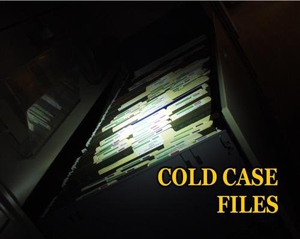Investigations Division

INVESTIGATIVE DIVISION
CRIME TIP HOTLINE (937) 642-7653
EMAIL A CRIME TIP at crimetip@unioncountyohio.gov
INVESTIGATIVE DIVISION The Union County Sheriff’s Office Investigative Division is comprised of several areas of criminal investigation. In general, the division is assigned to investigate felony-level crime which means any crime of a more serious nature. Within this wide spectrum, detectives are trained to investigate specific types of crime relating to narcotics, computers, burglary, murder, death scenes, sexual assault, white collar theft, fraud, arson, and many other areas of criminal activity. To contact the Investigations Division call (937) 645-4100, Ext. 4428.
CRIME SCENE In addition to their responsibilities as investigators, detectives are also trained as crime scene technicians. As determined by the uniformed deputy sheriff first responding to a crime scene, a detective may be summoned to the scene to photograph, collect, and preserve vital evidence that may lead to the identification and successful prosecution of a suspect. Detectives are trained to utilize an array of techniques for gathering various types of evidence produced at a crime scene such as latent fingerprints, DNA, shoe prints, bodily fluids, and trace evidence.
NARCOTICS A primary focus of the Investigative Division lends itself to the war on drugs. A detective is specifically assigned to gathering intelligence and developing various methods to infiltrate and dispel the criminal society of drug trafficking in Union County. With the recently growing trend of heroin abuse, efforts have intensified to thwart this insidious progression.
COMPUTER CRIME The Investigative Division is currently developing a forensic computer lab that houses grant-funded, state-of-the-art data recovery hardware and software. With the exponential development of computer technology at the consumer level, computer forensics is a much needed resource in today’s world of law enforcement. This technology is used for extracting digital evidence from computers in a forensically sound manner. In addition to child pornography and obvious computer-related crimes, computer forensics applies to all types of cases in which a computer was used to store relevant information. Computer forensics at the local level expedites protracted turnaround times for computer evidence submission to state labs.
SPECIAL OPERATIONS The Investigative Division Commander also oversees the Special Response Team (SRT), Crisis/Hostage Negotiations Team (HNT), the Small Unmanned Aircraft System (sUAS), and the Multi-Agency Drug Enforcement (M.A.D.E.) Task Force. The SRT is comprised of deputies trained for emergency crisis scenarios requiring special weapons and tactics. In the event of a crisis scenario, the SRT responds to the scene when the state of affairs is acutely dangerous and officer safety becomes paramount. Such scenarios may involve affecting a high risk search warrant or an arrest warrant, a hostage situation, a police stand-off, a suicidal person, or any other high-risk scenario.
Working in unison many times with the SRT is the Crisis/Hostage Negotiations Team (HNT). The HNT responds under the same circumstances as the SRT and immediately attempts communications with the distressed individual or suspect. While gathering intelligence information about the involved persons, it is the intrinsic goal of the HNT to deescalate the situation, establish effective communications with involved subjects, and manage a peaceful resolution.

